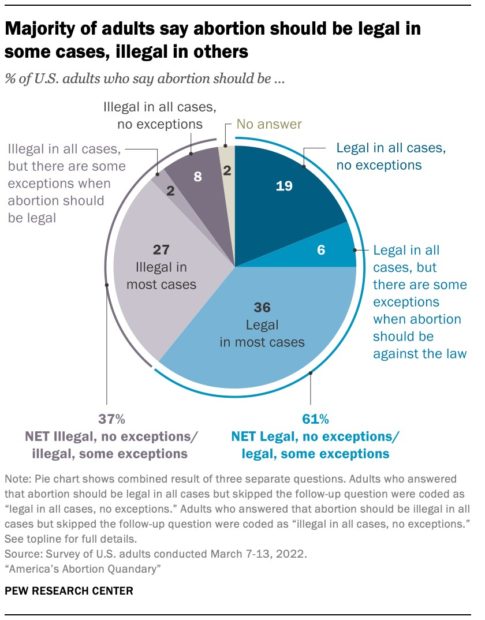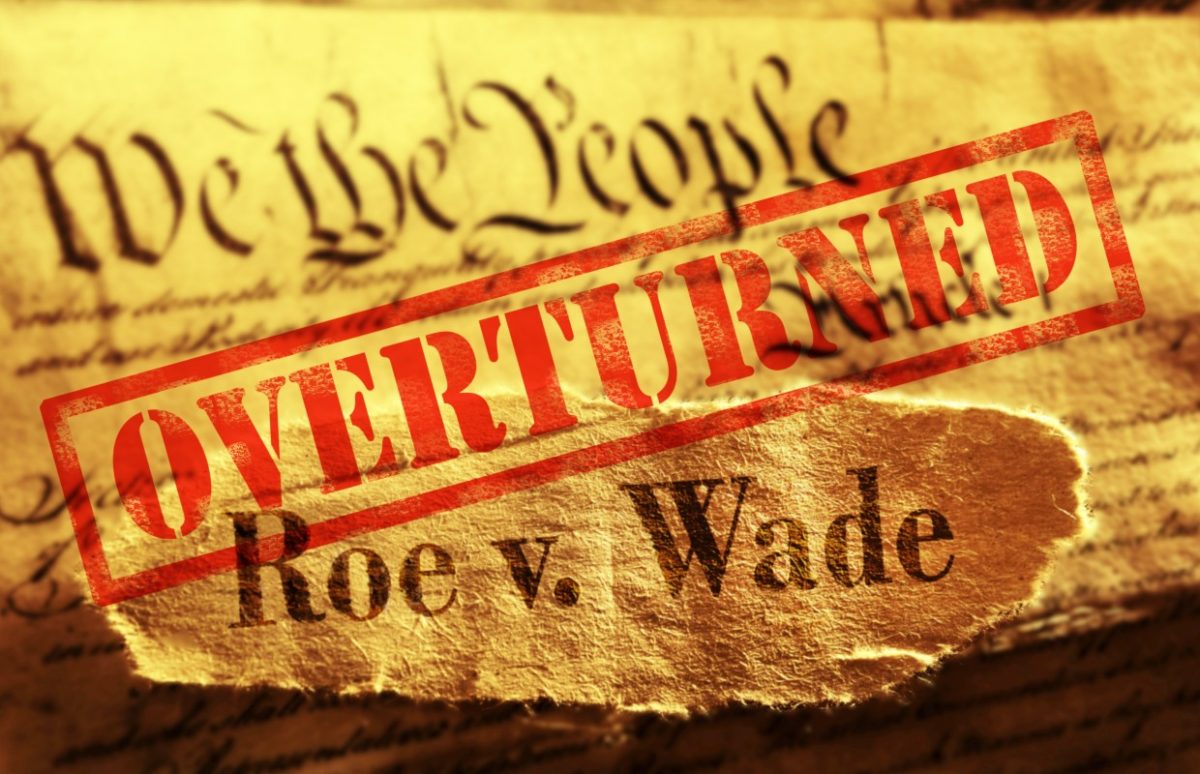On 24 June, the U.S. Supreme Court overturned one of its own “landmark rulings”, a rare event. There had already been leaks that the Court would reverse the 1973 Roe v Wade ruling that limiting a woman’s right to an abortion was unconstitutional.
There had been legal challenges to Roe v Wade for decades, but they became much more likely to succeed since former Republican President Donald Trump was able to name three replacements judges to the Court after deaths or retirements. All three of his nominees are politically and socially conservative. Added to three conservative judges already in place, this created a 6-3 Republican-Democrat (or conservative-liberal) majority on the Court. Many activists and politicians expected this to bring challenges to existing decisions. In fact, 13 of the 50 states had voted “trigger laws” on abortion, so confident were they that Roe v Wade would be overturned. These laws, banning or severely limiting abortion, were designed to be “triggered”, or put into action, as soon as the Court made a ruling. A further 13 states are expected to enact abortion limitation legislation, in some cases recalling representatives from summer recess to do so. Other states are rushing to reinforce their laws protecting the right to abortion. The states expected to restrict or ban abortion are mainly in the South and Midwest, mirroring the REpublican/Democrat divide. You can see a map detailing the situation on the NPR site.
The ruling itself was in response to a case called Dobbs v. Jackson Women’s Health Organization, which challenged a 2018 Mississippi law banning abortion after 15 weeks. The Supreme Court upheld the Mississippi legislature’s right to limit abortion rights, effectively removing the constitutional protection of the right to abortion enshrined in Roe v. Wade. This opens the way for states to enact their own abortion laws.
Pro-choice campaigners are pushing the Democratic Party in Congress to enact federal legislation to guarantee the right to abortion. But the current situation in Congress makes it unlikely that such legislation could pass. The Democrats have a very slim majority in the House of Representatives and the Senate is split 50-50, with Vice-President Kamala Harris having a casting vote. Activists hope the abortion issue will boost voter turnout at the Midterm elections to Congress in November, and that voters will support candidates who favour legislation to protect abortion rights. National opinion polls indicate that most Americans are in fact in favour of the right to abortion. A Pew Research Survey from March 2022 found that 61% of people surveyed believed that abortion should be legal in most or all cases. CNN has done regular polls on Roe v Wade since 1989 and has never found more than 36% of respondents in favour of completely overturning the ruling.

However, if Congress can enact legislation protecting abortion rights, it could equally enact legislation banning abortion outright.
Interpreting the Constitution
Roe v Wade was a 1973 class action brought in the name of “Jane Roe” (a fictional name used to protect the identity of the plaintiff, who was later named as Norma McCorvey). It asserted that a series of laws criminalizing abortion in the state of Texas, where she was resident, violated her constitutional rights. The Texas laws banned abortion except in the case where the mother’s life was at risk by carrying the pregnancy to term.
The current debate highlights the extent to which interpretation of the U.S. Constitution is a question of opinion. Roe v. Wade, and subsequent rulings, did not say that the Constitution guaranteed a right to abortion. It said that the Constitution guaranteed a citizen’s right to privacy, and interpreted that to mean that the law “Jane Roe” was contesting was unconstitutional because it interfered with that right.
This ruling is a possible addition to Shine Bright AMC File 15 Justice for All?, which discusses the Supreme Court, landmark rulings and includes a text about the 2020 death of Justice Ruth Bader Ginsberg opened the way for Donald Trump’s administration to weight the Supreme Court in favour of conservative opinion.
Copyright(s) :
zimmytws/Shutterstock
Tag(s) : "civil rights" "equality" "gender equality" "NAACP" "Roe v Wade" "Shine Bright AMC" "Supreme Court" "U.S. culture" "U.S. elections" "U.S. justice system"






